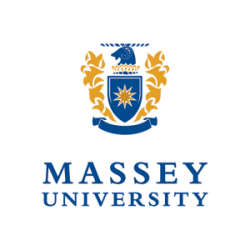
PROJECT
Peer Mentoring of At-Distance Students: A Resource for Tertiary Institutions
Māori learner success,
Supporting staff,
Workplace learning,
Distance and flexible learning,
Teacher professional development,
Te Reo Māori
Social and Behavioural Science
Status
Completed: 11 September 2011
Project Details
A project completed in 2009, undertaken by Massey University, to develop an extramural student peer mentoring project in the Social Work programme at Massey University in response to the problem of high rates of failure and non-completion among first-year students.
Aims:
The main aims of the project were to:
- assist achievement and retention through peer mentoring
- develop a resource for at-distance peer mentoring
- maximise student use of existing university supports
- extend current research on student achievement and retention.
Methodology:
The project methodology involved:
- evaluating current literature on mentoring and tertiary achievement and retention
- monitoring mentoring and support interventions with students against student retention and completion records.
Team

Simon Nash
Project Leader
Massey University
Tepora Pukepuke
Massey UniversityStatus
Funding
$8,190.00 (excl GST)
$8,190.00
Regional Hub Project Fund
Key Findings
The key findings from the project included:
- Peer mentoring interventions had positive outcomes in terms of achievement and retention. There was a small improvement (overall 4% of students) in successful paper completions by first-year at-distance students. The more significant improvement was an increase (overall 8% of students) in rates of formal withdrawals by students, and an equivalent decrease in student DNC levels (‘Did Not Complete’). Formal withdrawal from one or more papers is regarded as a better outcome than DNC, both in terms of academic and financial penalties, and for prospects of future study.
- Many of the obstacles to successful completion that students encountered was beyond the mentor’s control and concerned other aspects of students’ lives. The student peer mentors were not professional counsellors; their focus was on study-related support although this often had a strong pastoral/social support dimension.
- Many of the new students found the academic and institutional environment very foreign; this is particularly so for adult students and Māori and Pasifika students. A key mentoring function was to help students ‘learn how to learn’, how to be a student and to function within university systems.
- Mentoring focused on early interventions and course planning support, to ensure that new students were ready for study and had manageable study commitments. Accurate, timely course planning and course advice proved critical. At-distance students often had very unrealistic study workloads, given their other non-study commitments and their lack of experience as students.
- For many students, mentoring support within a paper was insufficient; they actually needed course planning assistance and, quite frequently, counselling to reduce their study load. Consequently, the mentors had to work closely with academic administrators on course advice matters.
- Mentoring is time-consuming and resource-intensive; therefore, an effective project needs to be based on clear goals and a plan of interventions that are tailored to the needs of students. Without clear goals, the resources required and transaction costs are likely to make mentoring work unsustainable. It is often difficult to assess the effectiveness of specific interventions in the short-term.
- Peer mentoring is an approach to supporting student retention and achievement that focuses on providing an affirming and accepting environment. However, mentoring is only ever part of a student retention and achievement strategy. Tertiary institutions can also provide a range of other academic and pastoral supports that address various aspects of students’ wellbeing. Institutions can both assist the student to integrate and modify their own practices to better accommodate diverse students.
Key Recommendations
The key recommendations from the project included:
- Mentor characteristics | Mentors should ideally be ‘peers’ who are both friendly faces and familiar with course content, ideally a senior student who is able to establish rapport with students. Mentors need sound IT skills, accurate practices, and the ability to learn technical skills such as telephony. They should be paid or otherwise compensated for at distance mentoring, because of the scale of the commitment required and the out-of-hours-time demands.
- Administrative support | Setup of operations requires a high level of administrative support. Robust mentoring requires good databases, a system for assessing at-risk students, and a working calendar and timetable for interventions. Key institutional relationships for mentors are with administrative and student services. Aim to reduce or avoid duplication of service provision where possible.
- Motivators and barriers | Mentors should aim to identify motivators and barriers to student achievement and retention. The most common de-motivators are excessive study loads, lack of organisation, and personal problems.
- Mentoring Māori students | Many Māori students have needs that can be addressed through manaakitanga and whanaungatanga. Mentors should aim to establish genuine, ongoing connections with Māori students.
- Strengths-based mentoring approach | A ‘strengths-based’ mentoring approach focuses on the skills that students have, encourages resiliency in continued study, and seeks to bring students into the tertiary culture in a way that is safe and that acknowledges their own cultural values.
- Mentoring at-distance students | Face-to-face, one-to-one mentoring is most effective, but is often not possible. For at-distance students, telephone and email mentoring is most suitable, supported by additional forms of communication such as cards, texts and letters.
- Working in study groups | Mentors should facilitate opportunities for students to work together in study groups. Scripting of mentoring contacts provides consistency of practice and a reassuring resource for mentors. Essential tools include a calendar of events and important academic dates, and a master list of student-related resources and services.